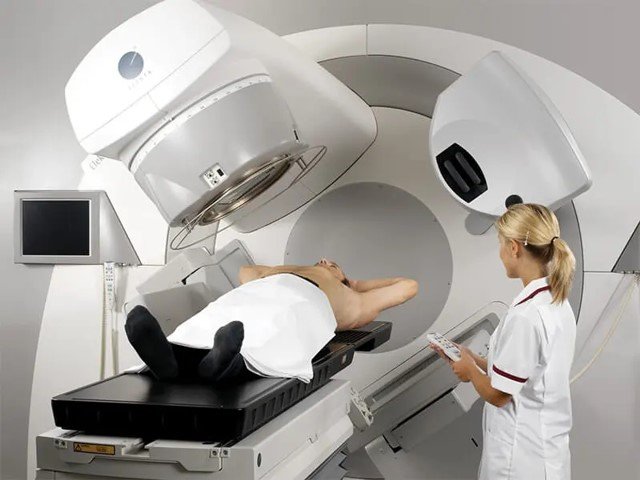Radiotherapy is this treatment of which works in order to prevent cancer in people. This only works when the person is beginning to suffer from this disease, if it has not been confirmed that the patient has it. Then first you will do some tests in order to verify that the person has cancer. Cancer is something difficult to detect, you do not know when you have it until an exam shows that tumors and cancer cells are appearing. One does not feel it, since this disease manifests itself almost stealthily, and if one does not get tested and spends a good time, then the disease will progress to the point where there is no longer a possibility that it can be treated in the person. That is why you have to lead a healthy life, and if you have a family member who suffered from this disease, then you should be very careful and get tested so that it is detected in time and you can save yourself. One of the treatments for this disease is called radiation therapy, and if you’re wondering if this treatment contains side effects on the person. Well, do not worry because in this article you will know about this. But before it begins, we would like you to read about this other one that has some relation to what you are about to read right now “Mammography and its importance”

Side effects
This does not happen throughout the body, remember that cancer is unpredictable and the worst thing is that it can establish itself anywhere in our body, existing its different types of cancer, such as kidney or heart. When the place where tumors and cells are located is detected, it is the same place from which they must be attacked. The most common that a person may have after radiation therapy would be skin changes. Meaning that you may have blisters, the area it was treated for is very dry, irritated, etc. Common problems, which can be easily treated and do not last long. Applying a lotion or cream to the area can help, being consulted by a doctor previously to give you permission whether or not you can apply treatments in place. These effects appear after radiation therapy and those same effects disappear a week later. If the skin is extremely affected, then the doctor will have to change the treatment.
Other effects would be fatigue, and long-term the second cancer. The latter is almost impossible to happen in the person.
Side effects in specific parts
If the treatment is done on your chest, you’ll have Shortness of breath Your shoulders will be stiffer It’s harder for you to swallow food and drinks Radiation pneumonitis. This may happen to you 2 weeks to 6 months after radiation therapy is complete. Pain in your nipples or breasts if in this case you are a woman Fibrosis thanks to radiation. If you go to a radiation oncologist, he or she can help reduce your risk of fibrosis.
If you are going to do it on your neck or head. Sores on your gums and mouth Stiffness in your jaw Frequent nausea Hair loss Lymphedema Your mouth will be dry Caries Difficulty swallowing something in the pelvis Sexual problems. This is for men, causing them to have erectile dysfunction (when the affected person cannot maintain an erection or simply cannot have it). Bleeding in the rectum Frequent diarrhea Irritation in the bladder area You can’t control your bladder and you can urinate on yourself Alterations in your menstruation, or that the woman simply stops menstruating. (women) Having symptoms of menopause (women) Infertility in the ovaries (if treatment is done on both ovaries) Lack of activity in the sperm, being that the man’s system does not manufacture the normal amount of sperm, or that it does but that the sperm is not strong as it should be. Being that it will be almost impossible for man to have children.
Conclusion
Radiation therapy is still an option. Sure, there are its dangerous symptoms that you don’t want to have, but usually these are very unlikely to happen to you. However, when you finish treatment, it is highly recommended that you ask your doctor many questions. For example, what to do if you have side effects, which specialist should go first, how to treat it personally. And other questions, the list is somewhat long, but depending on where you do it, that same list will be reduced. If you liked reading this article, we invite you to read about this other one that has some relationship with what you just finished right now “Why do women avoid mammography?”
